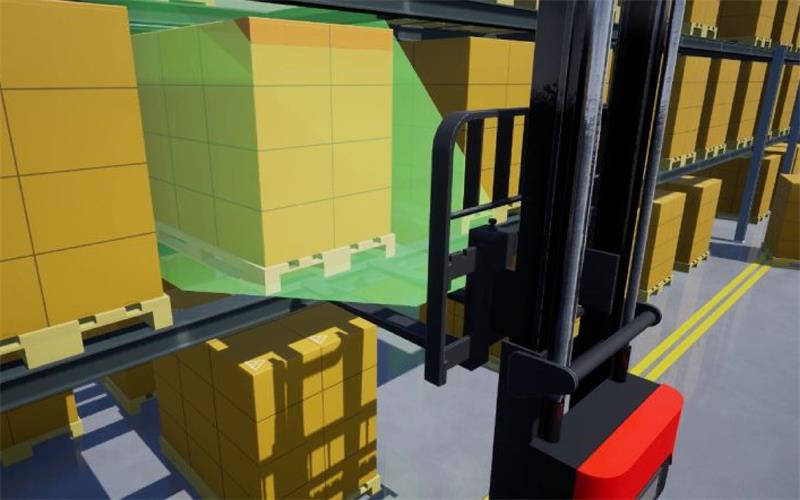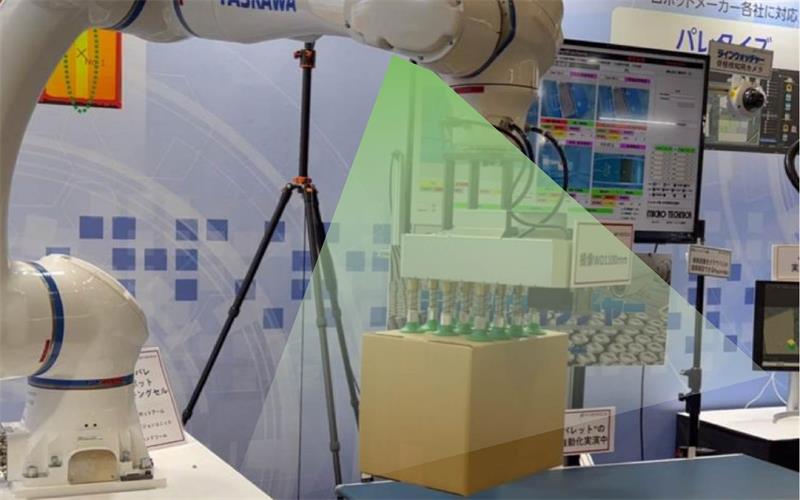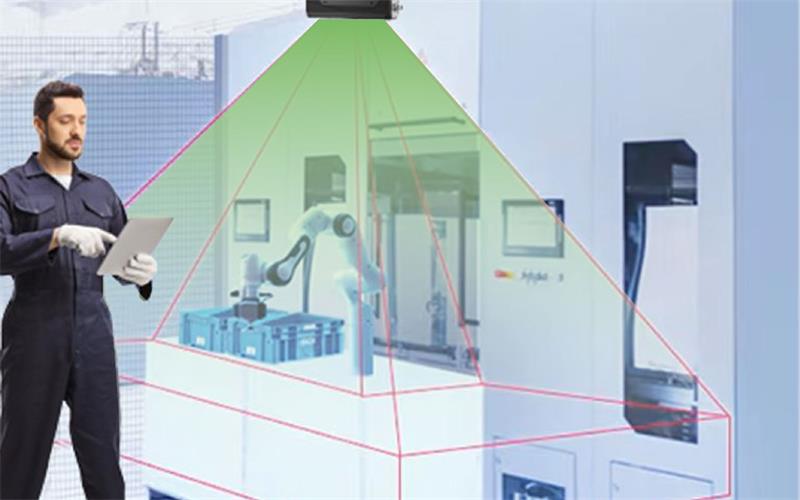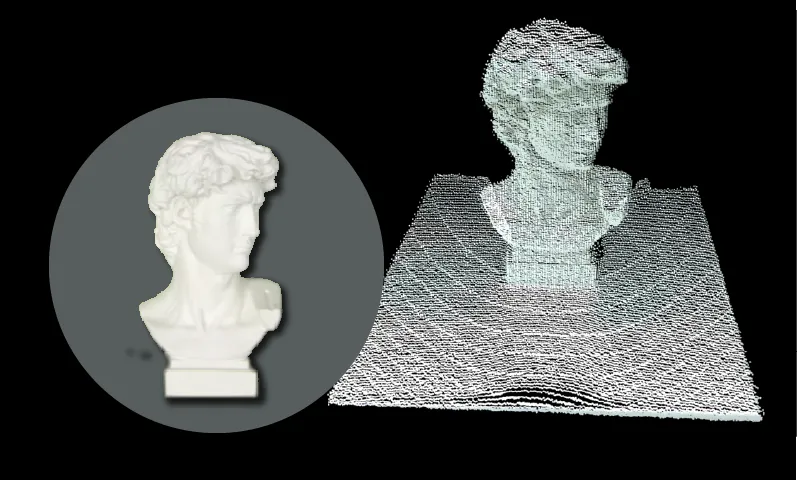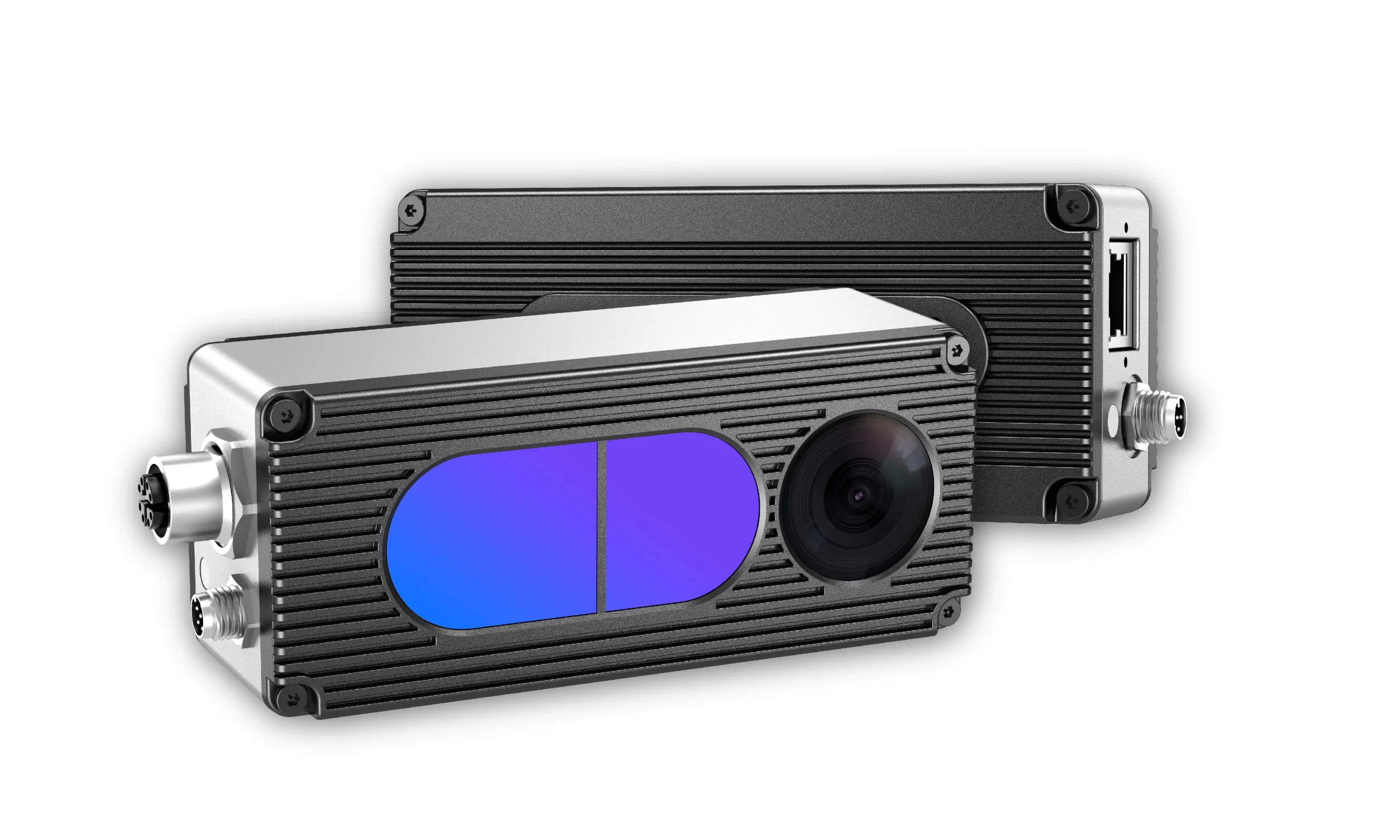CW-iToF RGBD Camera
High-Precision Real-Time Depth Sensing for Industrial Applications
Goermicro offers two 3D Time of Flight camera series based on different iToF depth-sensing technologies: Continuous Wave (CW) and Pulse. The DS series, featuring CW-iToF technology, integrates an RGB camera and depth camera into a compact, two-in-one design. Utilizing the SONY DepthSense sensor, the DS camera achieves millimeter-level precision, ideal for industrial scenarios that demand high accuracy. The combination of CW-iToF technology and RGB integration enhances depth measurements and provides high-quality color images, making the DS series versatile for various applications.
Discover Advanced P-iToF Cameras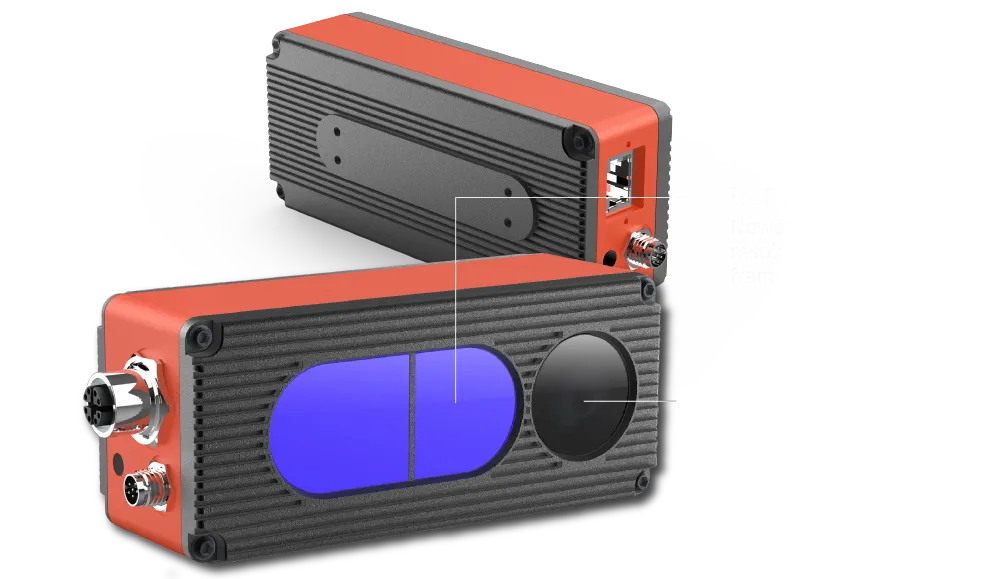
-

High Accuracy
Outstanding depth data is achieved through phase modulation, making it suitable for both indoor and outdoor use.
-

Sony Inside
Sony DepthSense iToF Sensor with the latest IMX570 chip offers a resolution of 640x480 and a frame rate of up to 15 fps.
-

HDR Supporting
The HDR mode combines multiple exposures in the phase domain to deliver accurate depth information.
-

Dual Frequency
The masterful combination of two different frequencies helps to improve overall accuracy.
-

IP67 Camera
The robust housing is dirt- and water-proof, featuring an M12 connector suitable for demanding industrial applications.
Key Features of Goermicro DS CW-iToF Cameras
Explore Our DS iToF Camera Models
The DS series ToF and RGB cameras developed with SONY's latest DepthSense chip, the IMX570. They utilize 940nm infrared light, making them suitable for both indoor and outdoor scenes. The ToF resolution is 640x480, with a frame rate of up to 15 frames per second. The depth camera has a field of view (FOV) of 67° horizontally and 50° vertically. The RGB camera resolution is 1600x1200, with a global shutter and an FOV of 70° horizontally and 50° vertically. The detection range is from 0.15m to 5m, with an absolute accuracy better than 1% and a relative accuracy of about 0.5%.
The DS series includes two models: DS86 and DS87. While they are essentially the same in most respects, there are some key distinctions:
IP Rating: The DS86 has an IP42 rating, while the DS87 boasts an IP67 rating due to its physical connection method of M12+M8 aviation plugs.
Power Supply Method: Only the DS87 supports Power over Ethernet (PoE).
Size: Consequently, the DS86 is slightly smaller than the DS87.
The table below highlights the main differences between them.
| Product Pics | Model | ToF Sensor | ToF Resolution | ToF Frame Rate | ToF FoV | PoE+ | RGB | Shutter | RGB Resolution | Interface | IP Rating |
|---|---|---|---|---|---|---|---|---|---|---|---|
 | DS 86 | Sony IMX570 CMOS | 640*480 | Max. 15fps | 67°(H)*50°(V) | No | Yes | Global | 1600*1200 | RJ45+M8 Aviation Plugs | IP42 |
 | DS 87 | Sony IMX570 CMOS | 640*480 | Max. 15fps | 67°(H)*50°(V) | Yes | Yes | Global | 1600*1200 | M12+M8 Aviation Plugs | IP67 |
-
Millimeter-Level Accuracy
The Goermicro DS Series 3D Time-of-Flight camera features Sony's latest IMX570 depth-sense sensor, enabling precise optical measurements at up to 15 frames per second. The sensor's backside-illuminated architecture and CAPD ToF pixel technology provide higher 3D depth data accuracy than conventional ToF cameras. The camera captures 2D and 3D data in one shot, including distance, intensity, and confidence maps. Additionally, the integrated VCSEL diodes and time-of-flight optimized lens ensure precise optical measurements using the time-of-flight method.
Learn more about accuracy and precision of the 3D cameras. -
Innovative Two-in-One RGBD Design
We knew early on that combining a depth camera with an RGB camera would result in better depth measurements. The best part is that you don't need to attach an RGB camera externally to Vzense's depth camera, as we have already integrated it into the product. The additional RGB color display enhances scene understanding for users, making it easier to set up and operate complex 3D systems.Learn how RGB-D camera helps the users.
-
HDR Function for High-Contrast, Complex Scenes
The High Dynamic Range (HDR) function is designed for high-contrast, complex scenes with both strongly and weakly reflective objects or surfaces. In Dual Exposure mode, two shots with different exposure times are combined to capture very bright and very dark objects simultaneously. This results in a precise 3D point cloud that accurately represents all object details, regardless of distance and reflectance. Learn more about HDR mode.
-
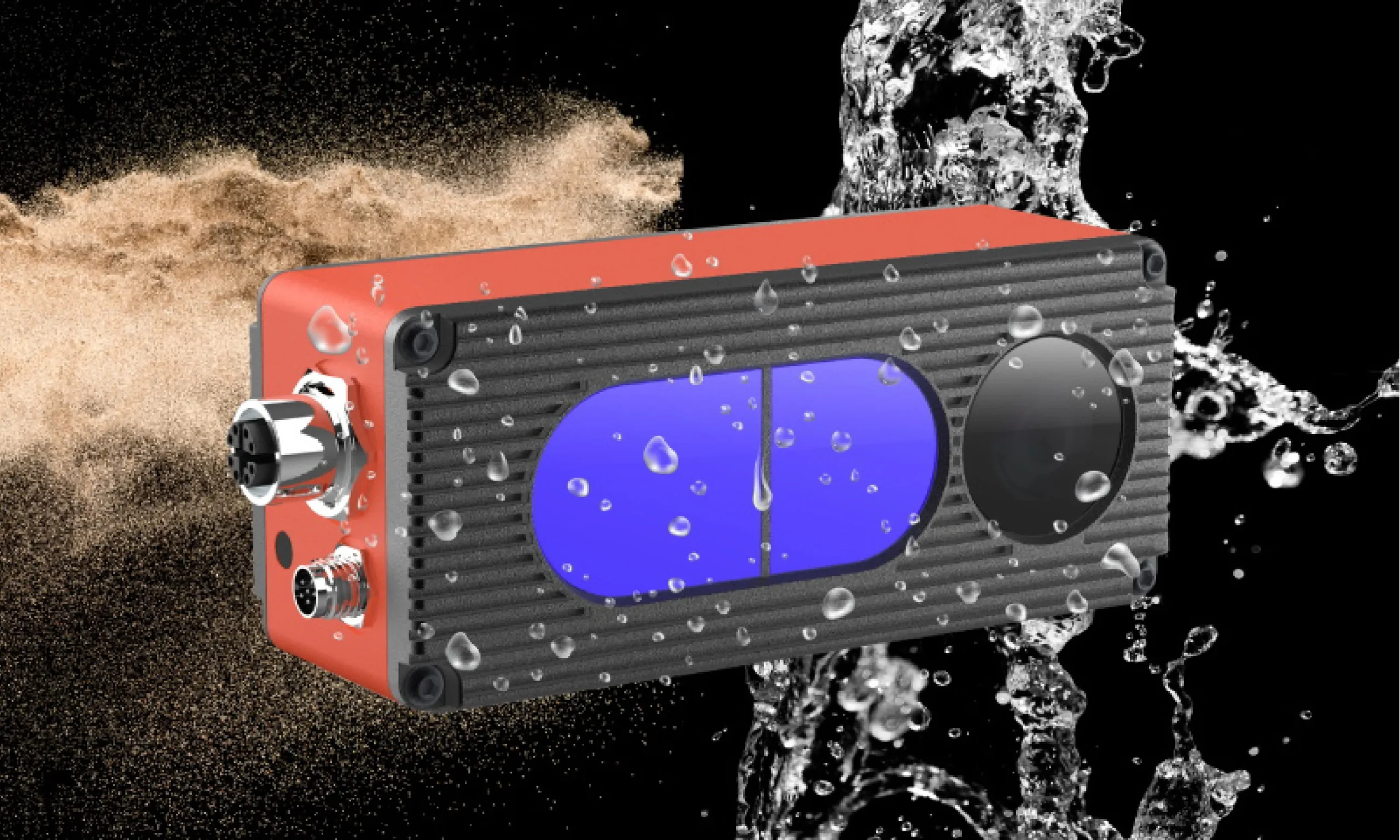
IP67-rated Camera
The Goermicro ToF Camera DS87 model is built to endure harsh environments. Its industrial-grade housing, measuring 131 mm x 50 mm x 44 mm, is corrosion-resistant, shock-proof, vibration-proof, and water- and dust-proof according to the IP67 standard. These features make the ToF camera ideal for mounting on both stationary and mobile robots or vehicles.
-
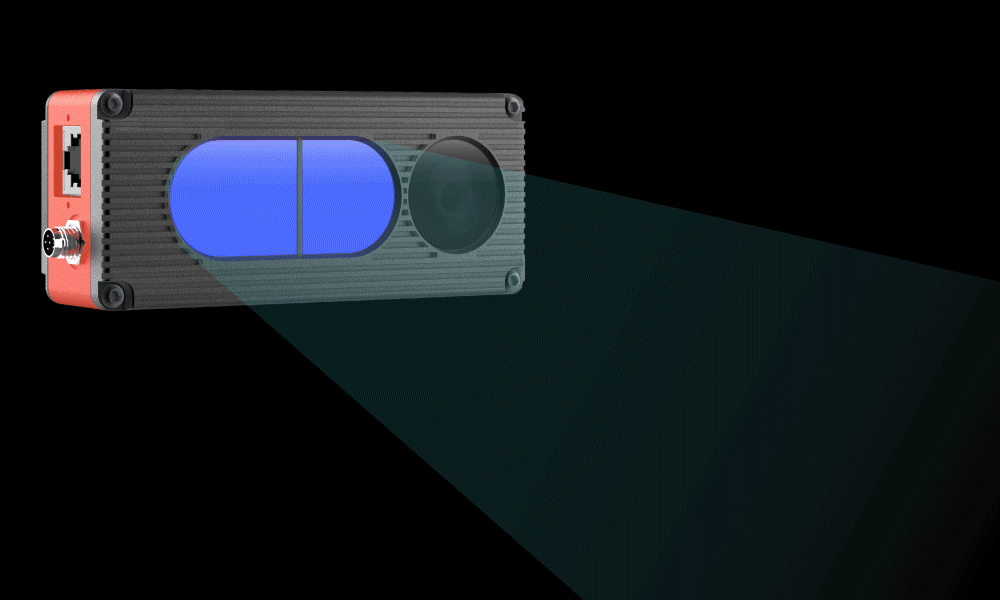
Dual-Frequency for Precise Measurements
To address the common issue of aliasing distance caused by phase wrapping in continuous wave iToF, Goermicro introduced two modulation frequencies for phase unwrapping. This allows the true distance of an object to be determined if two (or more) phase measurements with different modulation frequencies agree on the estimated distance. This multiple modulation frequency scheme also helps reduce multipath errors, which occur when reflected light from an object hits another object (or reflects internally within the lens) before returning to the sensor, leading to measurement errors. Learn more about dual-frequency.
-
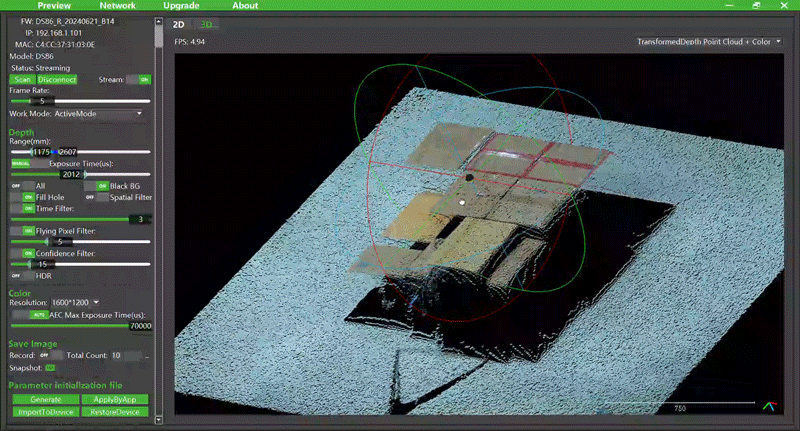
User-Friendly Software for Seamless 2D and 3D Exploration
The Scepter Software Development Kit (SDK) supports Windows, Linux, Arm Linux, and other operating systems and platforms. It includes a C++/C#/Python Wrapper and ROS Plugin, making it easy to use images acquired by the ToF 3D camera for data processing tasks. This enables you to quickly and easily build and expand custom solutions. Explore more about Scepter GUITool.
Point Cloud Samples
Your Ideal Choice for Depth-Sensing Cameras
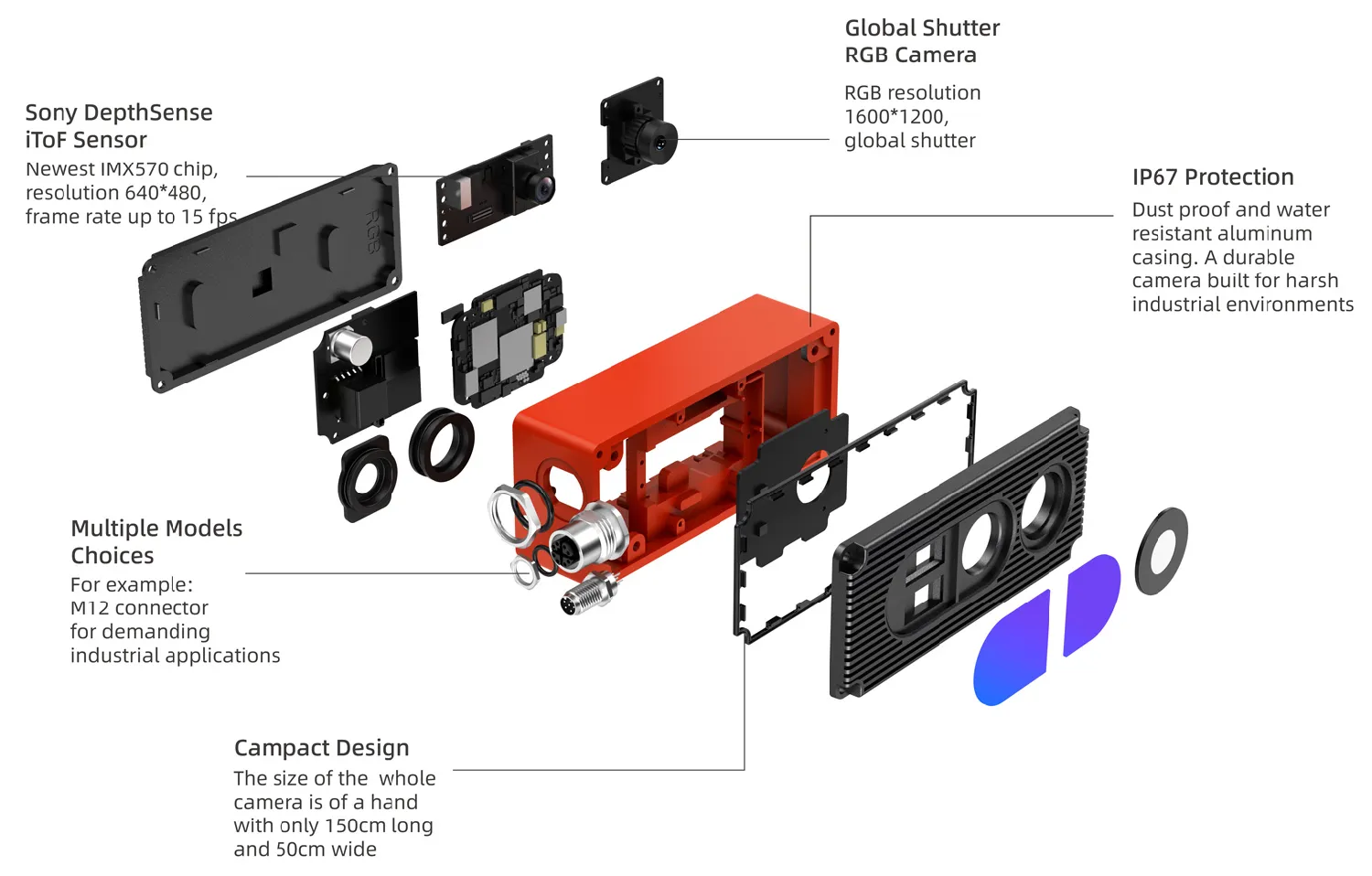
Applications Perfectly Suited for This Camera
-

Items picking
Explore More -

Smart Agriculture
Explore More -

Visual Guidance
Explore More


